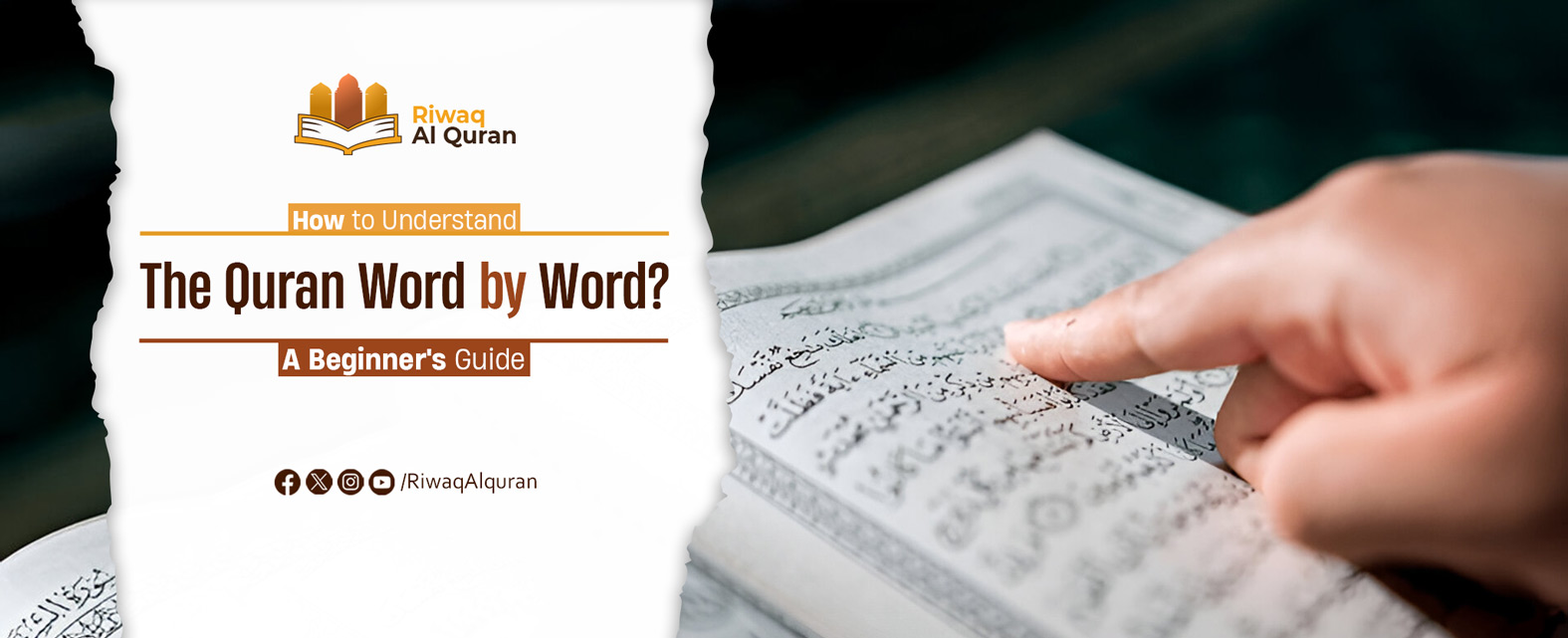Unlocking the Quran’s depth word by word begins with learning basic Arabic grammar, building vocabulary, and using trusted word-for-word translations. Combine this with Tafsir studies, Quranic Arabic courses, and modern tools like apps for interactive learning. Consistent practice, contextual insights, and guidance from a teacher will strengthen your comprehension. Remember to pair efforts with sincere Dua, asking Allah for knowledge and understanding.
Understanding the Quran word by word deepens your connection with its divine message. Whether you’re new to Arabic or already familiar with it, this guide offers practical steps and resources to help you break down the Quran and uncover its profound meanings, bringing you closer to its teachings.
Understanding the Quran word by word can deepen your connection with the Quran and enrich your knowledge. Here are some practical steps to help you achieve this:
Table of Contents
1. Learn Basic Arabic
The Quran is revealed in classical Arabic, making it essential to learn the language. Focus on grammar (Nahw) to understand sentence structures, morphology (Sarf) to learn how words are formed, and vocabulary to grasp frequently used Quranic terms. These elements are key to breaking the language barrier.
2. Use Word-for-Word Translations
Invest in reliable word-for-word Quran translations that break down each verse into individual words. These resources show the meanings, grammatical roles, and sentence structures in detail, providing you with a comprehensive understanding of each verse.
3. Study Tafsir (Exegesis)
Tafsir provides not only the contextual and deeper meanings of the Quran but also explains the wisdom behind the verses. Recommended Tafsir books like Tafsir Ibn Kathir, Tafsir al-Jalalayn, and Tafsir As-Sa’di are excellent for understanding both the linguistic and spiritual aspects of the Quran.
4. Take Quranic Arabic Courses
Structured Quranic Arabic courses are designed to simplify learning for non-native speakers. These courses focus on Quranic vocabulary, grammar, and context, making it easier for you to understand the verses as you read. Many platforms, like Bayyinah or Riwaq Al Quran, offer such programs online.
5. Use Technology
Technology makes it easier than ever to learn the Quran word by word. Apps like Quran Hive and websites like Corpus.Quran.com provide tools like interlinear translations, Tafsir, and detailed word analyses. They are highly interactive and perfect for self-paced study.
6. Practice Consistently
Consistency is crucial to mastering Quranic understanding. Dedicate time daily to reading the Quran, reviewing new words, and translating short passages. Regular practice ensures that you retain what you learn and gradually build your skills over time.
7. Learn in Context
Understanding the context of revelation (Asbab al-Nuzul) and the historical circumstances surrounding the verses is vital. This context enriches your knowledge, helping you grasp the reasons behind each verse and its practical application in life.
8. Work with a Teacher
Learning from a knowledgeable teacher is one of the best ways to progress. A teacher can help with understanding the meanings of words, proper pronunciation (Tajweed), and applying the rules of Arabic grammar to the Quranic text. Personalized feedback is invaluable in this process.
9. Pair with Dua
Your efforts will be most fruitful when paired with sincere Dua. Consistently ask Allah for guidance and understanding, saying, “O Allah, teach me what will benefit me, and increase me in knowledge.” With Allah’s help, your journey of learning will become more effective and fulfilling.


10. Learn Quran, Arabic And Islamic Studies
Riwaq Al Quran is a comprehensive online platform that offers personalized Quran, Arabic and Islamic Studies Online classes for individuals of all ages and backgrounds.
Their experienced instructors use a structured curriculum to cover Tajweed, Tafsir, and Memorization, providing easy and effective access to learning the Quran.
The advanced online classes allow for seamless communication and interaction between students and teachers. Join Riwaq Al Quran for a deeper connection with the Quran.
We offer several courses such as:
- Online courses for kids.
- Online Quran classes for kids and adults.
- Online Arabic courses
- Online Ijazah courses
- Online Islamic Studies courses.
Conclusion
Understanding the Quran word by word is a powerful journey that brings you closer to the divine message. By learning the foundational aspects of Quranic Arabic, using word-for-word translations, and seeking deeper insights through Tafsir, you can develop a more profound understanding of the Quran’s teachings. Consistent practice and utilizing modern tools, such as apps and online courses, will help reinforce your learning and make it easier to apply the Quran’s lessons to everyday life.
Moreover, the most important aspect of your Quranic journey is to seek guidance from Allah through Dua, asking Him for wisdom and understanding. The Quran is not just a book to be read; it is a book to be lived by. As you continue to explore its meanings, remember that each verse has a lesson that can enhance your spiritual and worldly life, guiding you on the straight path toward success and eternal happiness.


































